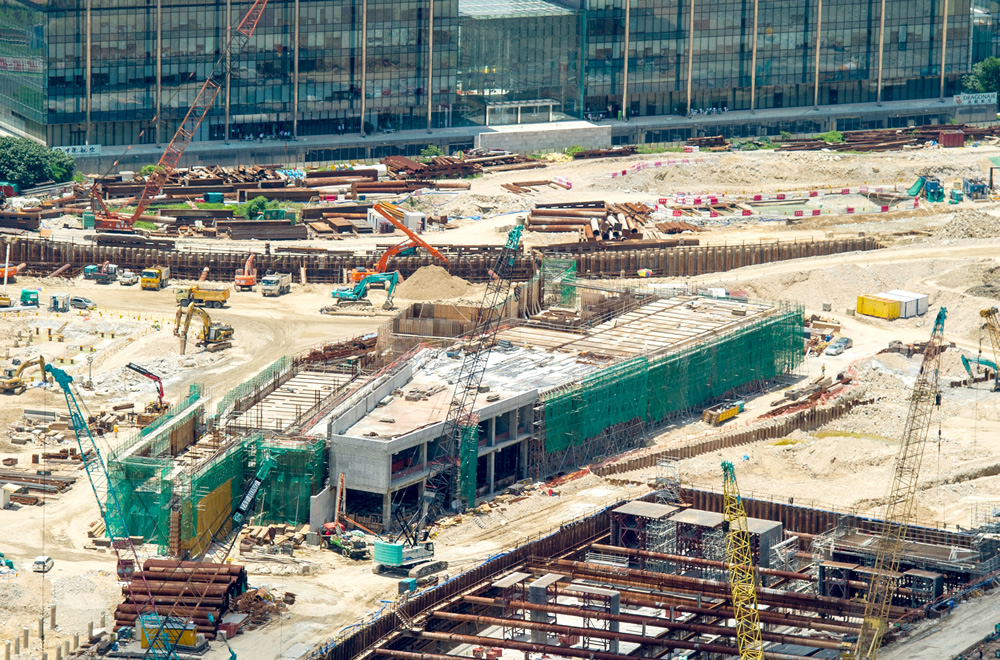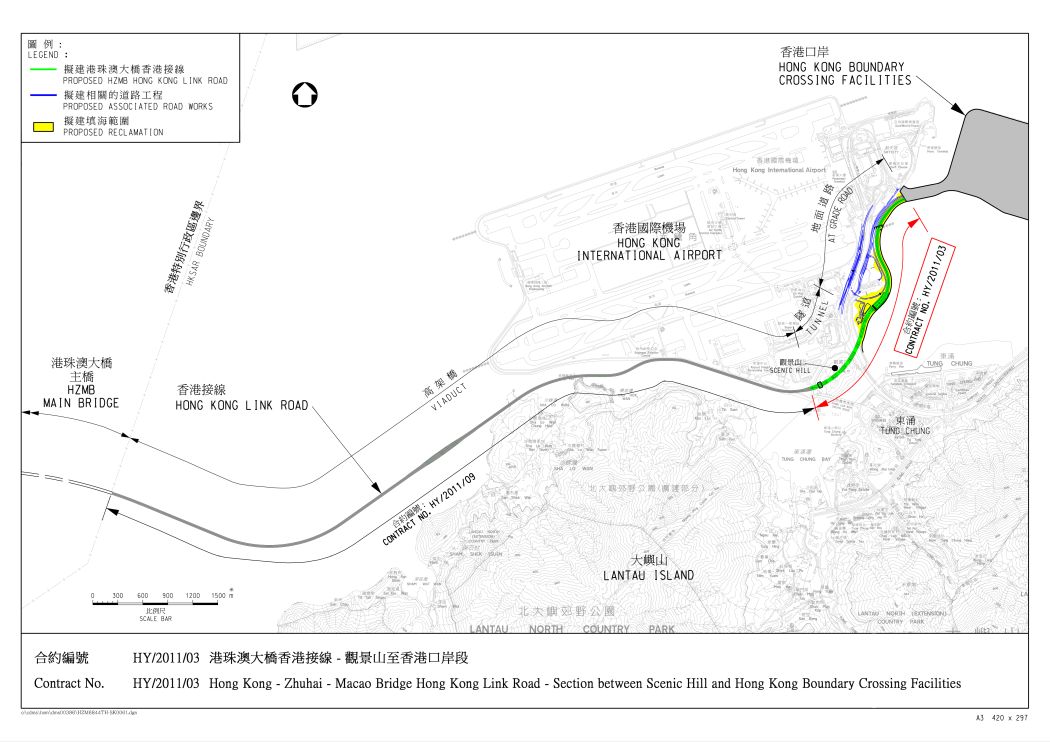The Highways Department has confirmed that over 10,000 records relating to the construction of the Hong Kong-Zhuhai-Macao Bridge are missing or have been submitted late by a construction contractor.
Request for Inspection and Survey Checking (RISC) forms which were late accounted for about 28 per cent of the total number of forms that contractually had to be submitted. The documents were in connection with the bridge’s Hong Kong Link Road – an HK$8.88 billion project launched in May 2012.
One of the RISC forms involved was submitted more than two years after construction was completed.

A veteran civil engineer and a lawmaker have cast doubt over the credibility of the late forms, questioning if anyone had ever checked the construction work.
The Highways Department said it was dissatisfied, but there were no quality issues.
“The [Highways Department] had already reflected the unsatisfactory performances of the engineering consultant and the contractor in this matter in the quarterly performance reports, and urged them for improvement,” the department said in a statement.

“The Government has all along attached great importance to work quality and safety. Before the commissioning of the [Hong Kong-Zhuhai-Macao Bridge], it was confirmed that the construction works were carried out according to the contract requirements and the technical and safety requirements of the works were also met.”
The latest revelation came after media reports on Saturday that showed that engineering consultant Ove Arup and Partners Hong Kong Limited wrote to the main contractor – China State Construction Engineering (Hong Kong) Limited – last July urging them to submit the required RISC forms.
The missing RISC forms concerned eight construction locations and involved 61 procedures such as the building of roads and underground facilities.

Ove Arup’s multiple previous demands for records were ignored by China State Construction Engineering, according to the letter. The letter was sent around three months before the bridge was opened last October.
On July 18, Ove Arup received at least 500 RISC forms from China State Construction Engineering.
One of the forms was for a steel fixing procedure completed on June 24, 2016, but China State Construction Engineering only issued the form on July 16, 2018. Ove Arup signed the form on July 18 when it was received.

According to a statement issued by the Highways Department last Sunday night, Ove Arup reported to the department in end of July last year that China State Construction Engineering had failed to submit over 10,000 RISC forms in time.
The department said it asked Ove Arup to submit the site construction records and received photo records in August 2018.

The department also separately appointed an independent consultant to examine the records and met with resident Ove Arup site staff. The independent consultant concluded that there were no cases of document forgery.
Veteran civil engineer So Yiu-kwan told Apple Daily that it was very rare for RISC forms to be submitted two years late, since the people responsible may have moved on to other sites or left the company.
“It would not take much time to complete such records. It is like doing homework that has to be completed everyday. I don’t understand why they were not filled,” So said.

He said the belatedly submitted forms could not act as proof of engineering quality but questioned whether work had been checked: “What was the status at the time? It is impossible to complete the records by memory.”
He added that concrete at the bridge may have to be drilled open to check the quality if engineering problems occur.

The incident came after the disappearance of up to 73 per cent of the work records relating to part of the MTR’s Hung Hom station expansion for the HK$97.1 billion Shatin to Central Link.
Civic Party lawmaker Tanya Chan said the incidents show issues with the engineering sector’s monitoring mechanism.
Chan, a barrister, said it would constitute forgery of documents if top management of the engineering companies demanded engineers sign the forms, even if they had never checked the sites. She also criticised the government as failing to reveal the incident after it was notified: “It was not mentioned even after the bridge opened.”
